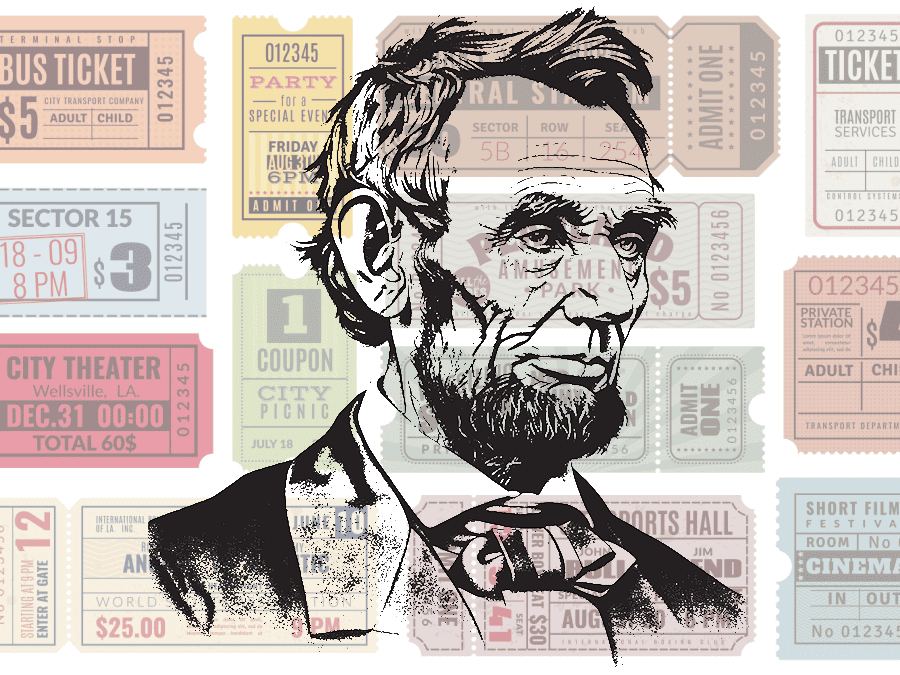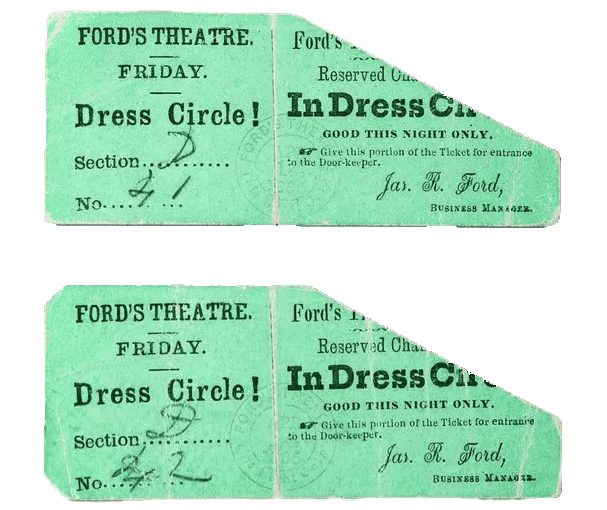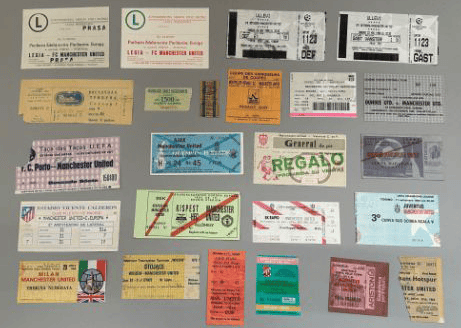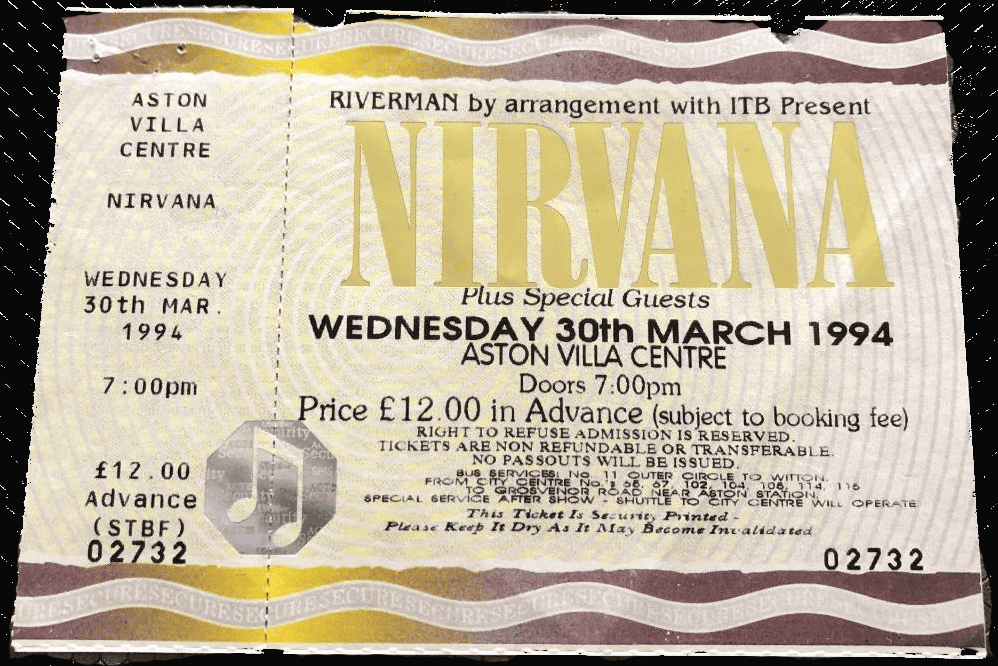Tickets have long served as keys to experiences, granting us access to performances, journeys, and competitions. But their value often transcends their immediate purpose. Take, for instance, the recent sale of theatre tickets from the night Abraham Lincoln was assassinated; these relics fetched an astonishing £215,453 at a Boston auction house. Such instances spotlight how tickets can morph into invaluable memorabilia, capturing moments that have resonated through history or defined an era.
This blog delves into the burgeoning market for collectable tickets, examining their worth not just as entry passes but as treasured keepsakes. From historical railway tickets sold for a premium in the UK, to high-priced sports tickets across the pond, and even rare music concert stubs, we explore the intricate dynamics that set the price and value of these unique artefacts.
A historic sale: Abraham Lincoln’s final theatre experience
The recent sale of theatre tickets from the night Abraham Lincoln was assassinated serves as a monumental example of the worth assigned to memorabilia. Sold at a Boston auction house for £215,453, these tickets, dated 14 April 1865, offer far more than just historical novelty. They represent an irreversible moment in American history. What makes these examples especially compelling are the handwritten details like the prime front-row seat assignments. It’s not just about owning a piece of paper; it’s about holding a tangible link to a seminal moment in time. Moreover, their rarity adds to their value: only one other ticket from that fateful night is known to exist, currently residing in the collection at Harvard University.
The golden age of rail travel: UK railway tickets
In the United Kingdom, the appetite for historical railway tickets also presents a fascinating case study in the value of memorabilia. Platforms such as Paddington Ticket Auctions serve a dedicated community of railway enthusiasts, trading in tickets from the golden age of rail travel. Examples such as a third-class single from Blandford to Dorchester sold recently, can fetch over a thousand pounds. These aren’t mere souvenirs; they are fragments of a bygone era, offering us a glimpse into the early days of rail travel before the Midland and LSWR lease was ratified in July 1876.
Scoring some memorabilia goals: the world of sport
The demand for sporting collectables is evident both in the United Kingdom and the United States. Platforms like The Saleroom offer a rich array of vintage and rare tickets for football matches long since played. These can range from season tickets to Wembley Cup finals, each with its own distinct historical significance. Across the Atlantic, the market for historic sporting tickets is even more competitive. As reported by Action Network, a ticket for the 1934 Golf Masters tournament recently sold for a staggering $600,000. The price tags may vary, but the allure of owning a piece of sporting history remains universally compelling.
Echoes of the past: tickets as music memorabilia
Music, like history and sports, leaves its own indelible marks. Websites such as eBay offer avenues for securing rare music memorabilia, like an unused ticket for a Nirvana concert in March 1994. This isn’t just a stub; it’s a somber reminder of a lost talent, as the concert took place just a month before Kurt Cobain’s death. The item in question is currently for sale on eBay. Pieces of memorabilia like this offer fans and collectors the chance to own a tactile memory and hold a moment of musical history in their hands.
The sale and collection of tickets as memorabilia presents a rich and nuanced marketplace. Tickets aren’t just functional; they can serve as intimate connections to events and figures that have shaped our world. The price of these tickets, often auctioned for sizable sums, highlights their significance not only as entry passes but as treasured links to our collective past.







